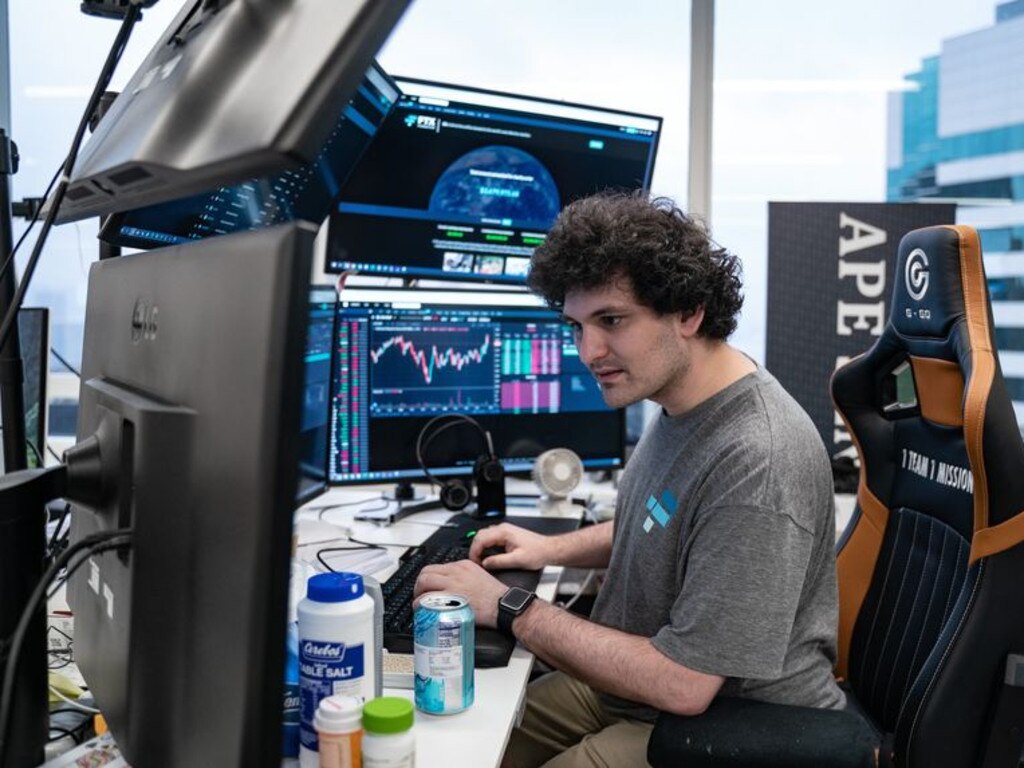PlayUp, the Aussie company caught up in the FTX collapse and the $600m deal that never eventuated
Daniel Simic thought he had a deal selling to Sam Bankman-Fried, only for it to be cancelled. He went to the Bahamas and thought he had another deal. Then FTX fell into bankruptcy.
Meet the Australian wagering entrepreneur who was on the verge of a $650m sale to Sam Bankman-Fried’s FTX until it was scuppered by an ugly legal battle, then almost resurrected in recent talks in the Bahamas – only for the crypto exchange’s massive collapse to put paid to his dreams.
It has been a rollercoaster ride for Daniel Simic, the Sydney-based 46-year-old chief executive of online wagering and fantasy sports business PlayUp, a company with a colourful history that was at one stage set to become the betting arm of Bankman-Fried’s $US32bn ($47bn) crypto empire.
Simic has recently returned to Australia after spending almost two months with FTX executives in the Bahamas, where he had been negotiating to try to sell PlayUp a year after a $US450m deal was pulled amid a messy dispute with a former US executive.
What he saw while he was in the Caribbean, spending July and August on the island paradise where FTX and Bankman-Fried were household names, left Simic impressed and none the wiser that the biggest name in the crypto world was about to fail.
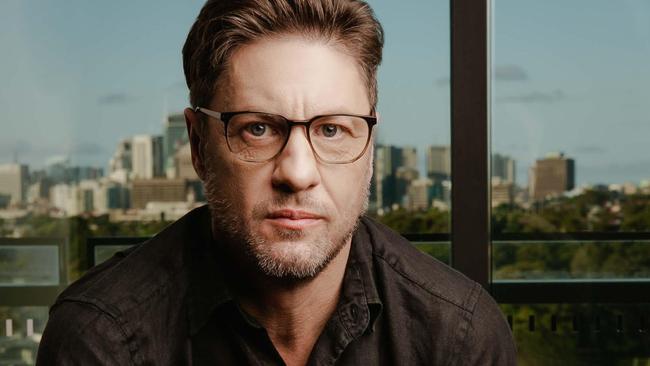
“I left there thinking it was going to be a $100bn company. I was amazed by what the business was producing tech wise, the cheap acquisitions they were making and they seemed to be focused on what they were doing,” Simic tells The Weekend Australian.
“I believed Sam had set up a brilliant business. He had it made. If he hadn’t been doing stupid, risky trades and upsetting his main competitor it would have been a $100bn business.”
But FTX became one of the biggest collapses in recent history, a tale full of quirky characters like Bankman-Fried – the poster boy of the cryptocurrency boom.
Bankman-Fried, a frizzy-haired 30-year-old millennial who was seen as a crypto evangelist, was at the helm of an empire that at its peak had a valuation of $US40bn – $US32bn for its international business and $US8bn for its US arm based on funds raised from venture capital.
He seemed equally at home spreading the crypto gospel at tech conferences, talking to US government authorities about tighter regulations and living up to the dishevelled T-shirt wearing “tech bro” look as the founder of an online kingdom and one of the richest individuals in the world.
His business was underpinned by the FTX exchange, where clients bought and sold and traded cryptocurrencies, and the Alameda Research crypto hedge fund that had been buying struggling companies hit by the downturn in cryptocurrency values this year.
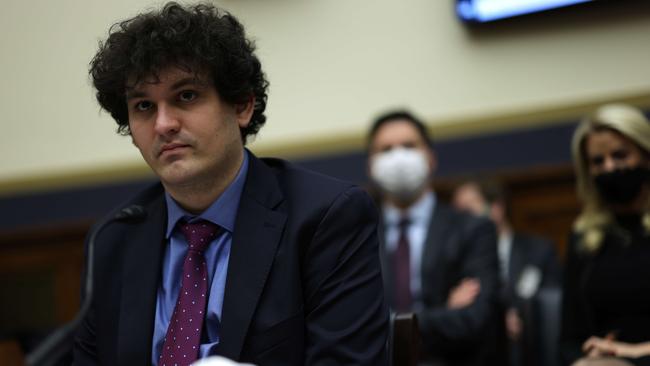
Bankman-Fried ran into trouble in early November when rival exchange Binance, founded by Changpeng Zhao, moved to liquidate its FTT tokens, the cryptocurrency issued by FTX.
The token lost 80 per cent of its value in two days and FTX filed for bankruptcy. It has since emerged that FTX allegedly was secretly shifting customer trading funds to Alameda to finance trading and investments, which has left more than one million consumers out of pocket – 30,000 of them Australians.
Simic says he was “shocked” when the news of FTX’s demise went around the world, and believes most of the staff had little idea of what was happening behind the scenes, where Bankman-Fried and a small group of friends and executives held sway over all decision making.
“They did have a structure but it wasn’t a conventional company. It wasn’t a free for all,” he says. “They did seem like a lot of young kids though but they were working hard, up to 4.30am and so on. Everyone had bought in and thought they were going to take over the world, everyone there believed in Sam and his vision.
“A lot of the key people have told me directly they had no idea, and they all feel duped. They have lost a lot too. They were all incentivised with these FTT coins, which is why they worked so hard.
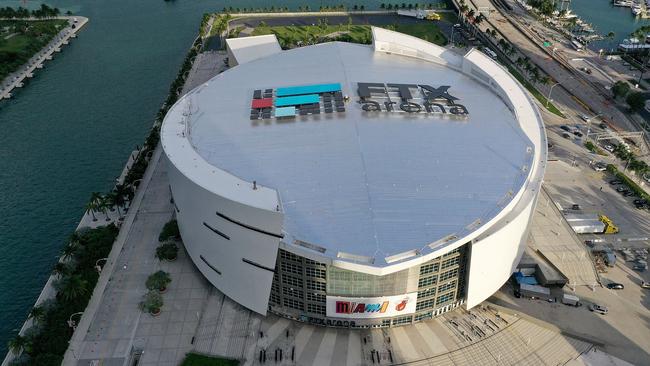
“They had relocated their families to the Bahamas, some with young kids, and this is how it has ended up. They are all in shock.”
Besides the FTX crypto trading exchange and Alameda, Bankman-Fried had dozens of other holdings, including real estate, stakes in Twitter – he reportedly had told Elon Musk he also wanted to privatise the social media company – and share trading firm Robinhood, as well as naming rights to sports stadiums.
FTX had wanted to make a move into the burgeoning US wagering market, finally opening up after decades of betting being mostly banned outside racetracks and Las Vegas casino sports books.
PlayUp was one of several overseas betting firms to pile into sports-mad America, which seemed set for a massive wagering boom. In August last year, PlayUp was introduced to FTX – which would offer Simic $450m for his firm. The deal was pulled by FTX management on November 24 last year, and Simic became embroiled in a dispute with former PlayUp US boss Leila Mintas.
PlayUp has alleged Dr Mintas sabotaged the deal by contacting Backman-Fried directly and trying to set up her own sale deal with FTX, without Simic’s involvement. She has denied the allegations, which are central to ongoing litigation in US courts. What Simic did already have was a $35m investment from FTX, announced in January this year, and he had been trying to convince FTX to renegotiate a full purchase of PlayUp.
He says he was at least on the verge of clinching a $US52m funding package with a party closely related to FTX that was to help PlayUp keep expanding its US business, ahead of a planned float on the NASDAQ exchange in the first quarter of 2023 via a special purpose acquisition company called IG Acquisition Corp, mooted to value PlayUp at $US350m.
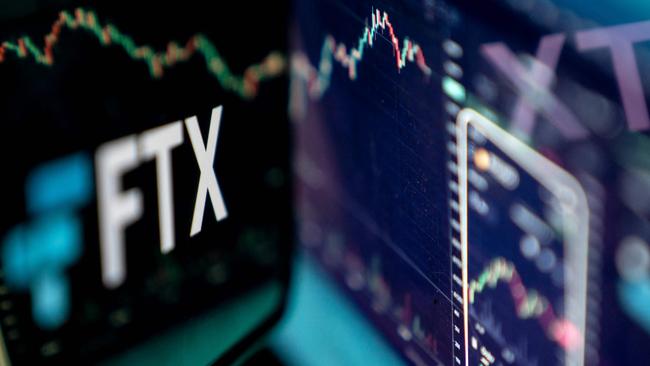
Simic is now quickly scouring the market for more investment for PlayUp, which has sports betting licences in US states such as New Jersey and Colorado and fantasy sports operations in Australia and New Zealand.
But his dealings with FTX over the past 18 months have given him a unique insight into characters like Bankman-Fried.
“I reckon two things happened: Sam thought he always had the funds secured to keep going but once his own coin took a hit he couldn’t … pay back any investor money,” Simic says. “The other thing was that he was only 30 and so there was that inexperience and never having run a company of that size and magnitude.”
PlayUp has had a colourful history. Its former owners and all-star board, featuring luminaries such as Nick Greiner, Bob Mansfield and billionaire Bruce Mathieson, once planned to break into the Chinese sports gambling market.
It raised $100m from investors such as former PM Malcolm Turnbull and his son Alex, rich Australians including Allan Myers and David Paradice and sports stars like cricketers Steve Waugh and Adam Gilchrist. But the business spent far too much money on staff and opening offices around the world, while building its own software. By January 2016 its parent company Revo Pty Ltd was in liquidation.
Simic purchased secured debt in Revo from Alex Turnbull, after many PlayUp staff went without wages and superannuation. He received PlayUp intellectual property, software and social media pages and apps, and re-established the company as a daily sports fantasy website aimed at Indian sports fans.
More recently, PlayUp has broken into the fast-growing US sports betting market, establishing a sports betting brand in 2019 after acquiring five Australian betting platforms. The sale to FTX was going to be the culmination of Simic’s strategy for PlayUp to reach its global potential.
Simic remembers travelling to the Bahamas in mid-November last year, meeting Bankman-Fried and other FTX executives. Bankman-Fried was already famous for playing the League of Legends game in a meeting with VC firm Sequoia Capital during a pitch that led to $US214m in funding.
“It was the first time I’d sat in the room with Sam, and he was known as the ‘king of multi-tasking’,” Simic recalls.
“He was doing all these things on his computer, but asking random questions every so often. He was clearly listening though, as at one stage I was rattling off which US states where legalising betting was pending. He looked up and said randomly ‘oh so there’s 10 states pending’. He’d been counting while he was looking at his computer screen the whole time.”
While talks to sell PlayUp in its entirety to FTX would end, Simic got a $US35m ($48m) promissory note from FTX in a deal announced in January. FTX head of product Ramnik Arora said at the time: “We are delighted to have an investment in PlayUp (and) we believe PlayUp is at a pivotal moment in its corporate journey.
Arora has since been named as one of Bankman-Fried’s key lieutenants and was involved in much of FTX’s deal making. He was one of the executives who Simic dealt with in the FTX’s offices, though he would often see Bankman-Fried too.
“He would get up and walk around the office with one person, and then he would later be seen with someone else. He was having walking meetings, and it did seem like he was trying to get his (number of) steps up,” he says.
“It was like he had two completely different personas. He would be shy and have his head down and next thing you know he’s doing presentations in front of the world at these conferences. He seemed very introverted.”
Bankman-Fried this week apologised in a letter to FTX employees, blaming his “irrational decisions” on “shitty circumstances”. He also claimed to be working on finding funding to save FTX before and after filing for bankruptcy, and said he would appear at a New York Times conference next week.
Veteran restructuring executive John Ray, appointed as FTX’s chief executive, has said he has “never seen such a complete failure of corporate controls and such a complete absence of trustworthy financial information”.
Meanwhile, Simic hopes to clinch some more funding ahead of PlayUp’s mooted SPAC float in early 2023.
“Our revenues in Australia have increased 30 per cent year on year, but there is still a cash burn in the US where we are building a tech platform to merge fantasy sports with a wagering offering. It is a big market there,” he says.


